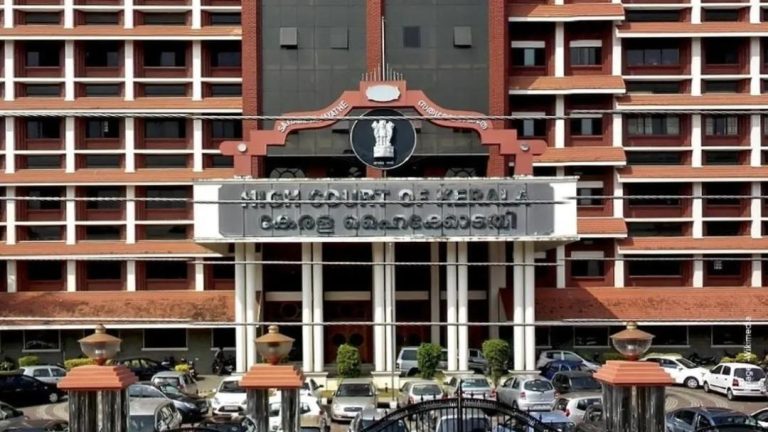
Congress Corrupt & Forgotten Children of Britishers: Ranaut
In a recent visit to the Sundernagar assembly segment of her constituency, BJP MP from Mandi, Kangana Ranaut, launched a scathing attack on the Congress party, labeling it as “corrupt and forgotten children of Britishers.” The Bollywood actress-turned-politician’s bold remarks have sent shockwaves across the political landscape, with many taking to social media to react to her statements.
Ranaut’s comments were made in the context of the country’s corruption landscape, which she claimed was transformed by Prime Minister Narendra Modi’s bold decisions and impeccable integrity. According to her, the country was plagued by corruption before 2014, but Modi’s leadership has helped to change the perception of India as a corrupt nation.
The Congress party, which has been in power for most of India’s post-independence period, has been a subject of criticism from various quarters for its alleged corruption and nepotism. Ranaut’s comments are the latest in a long line of attacks on the party, which has seen its popularity decline in recent years.
So, what prompted Ranaut to make such strong statements about the Congress party? And what does she mean by “forgotten children of Britishers”? In this blog post, we’ll delve into the context of Ranaut’s remarks and examine the implications of her comments for Indian politics.
Colonial Legacy and Corruption
Ranaut’s statement about the Congress party being “forgotten children of Britishers” is significant because it highlights the party’s colonial legacy and its alleged corruption. The British colonial era in India was marked by exploitation, oppression, and corruption, which had a lasting impact on Indian society and politics.
The Congress party, which was formed in 1885, was initially a movement for Indian independence from British rule. However, after India gained independence in 1947, the party became the dominant force in Indian politics, with many of its leaders holding positions of power and influence.
Over time, the Congress party has been accused of perpetuating corruption and nepotism, with many of its leaders and their families amassing wealth and power. The party’s colonial legacy has also been criticized for perpetuating the notion that power and privilege are the exclusive domain of the elite.
Ranaut’s comments are a reflection of this criticism, with her suggesting that the Congress party is still beholden to its colonial past and is therefore corrupt and ineffective. By labeling the party as “forgotten children of Britishers,” Ranaut is implying that the Congress party has failed to break free from its colonial legacy and is instead continuing to perpetuate the same patterns of corruption and exploitation that characterized the British colonial era.
Modi’s Impact on Indian Politics
Ranaut’s comments about the country’s corruption landscape are also significant because they highlight the impact of Prime Minister Narendra Modi’s leadership on Indian politics. Modi, who has been Prime Minister since 2014, has been credited with transforming India’s economy and reducing corruption.
Modi’s flagship initiatives, such as the Goods and Services Tax (GST) and the demonetization of high-denomination currency notes, have been aimed at reducing corruption and promoting transparency and accountability in government. His government’s efforts to promote digital payments and ease of doing business have also helped to reduce corruption and increase transparency.
Ranaut’s comments are a testament to the impact of Modi’s leadership on Indian politics. By suggesting that the country was plagued by corruption before 2014 but has since changed, Ranaut is highlighting the progress that has been made under Modi’s leadership.
Implications for Indian Politics
Ranaut’s comments have significant implications for Indian politics, particularly for the Congress party. The party has been struggling to regain its footing in Indian politics, with many of its leaders facing corruption charges and allegations of nepotism.
Ranaut’s comments are a reflection of the widespread criticism of the Congress party, with many Indians viewing it as corrupt and ineffective. The party’s failure to address corruption and nepotism has led to a decline in its popularity, with many voters turning to other parties, such as the BJP, for change.
The Congress party’s response to Ranaut’s comments has been muted, with party leaders refusing to engage with her remarks. However, the party’s silence has only served to fuel speculation about its alleged corruption and nepotism.
In conclusion, Kangana Ranaut’s comments about the Congress party being “corrupt and forgotten children of Britishers” are significant because they highlight the party’s colonial legacy and its alleged corruption. Ranaut’s comments are a reflection of the widespread criticism of the Congress party, which has been plagued by corruption and nepotism.
The implications of Ranaut’s comments are significant for Indian politics, particularly for the Congress party. The party’s failure to address corruption and nepotism has led to a decline in its popularity, and Ranaut’s comments are a reflection of the widespread discontent with the party’s leadership.
Source:
https://theprint.in/india/congress-forgotten-children-of-britishers-kangana-ranaut/2584416/






